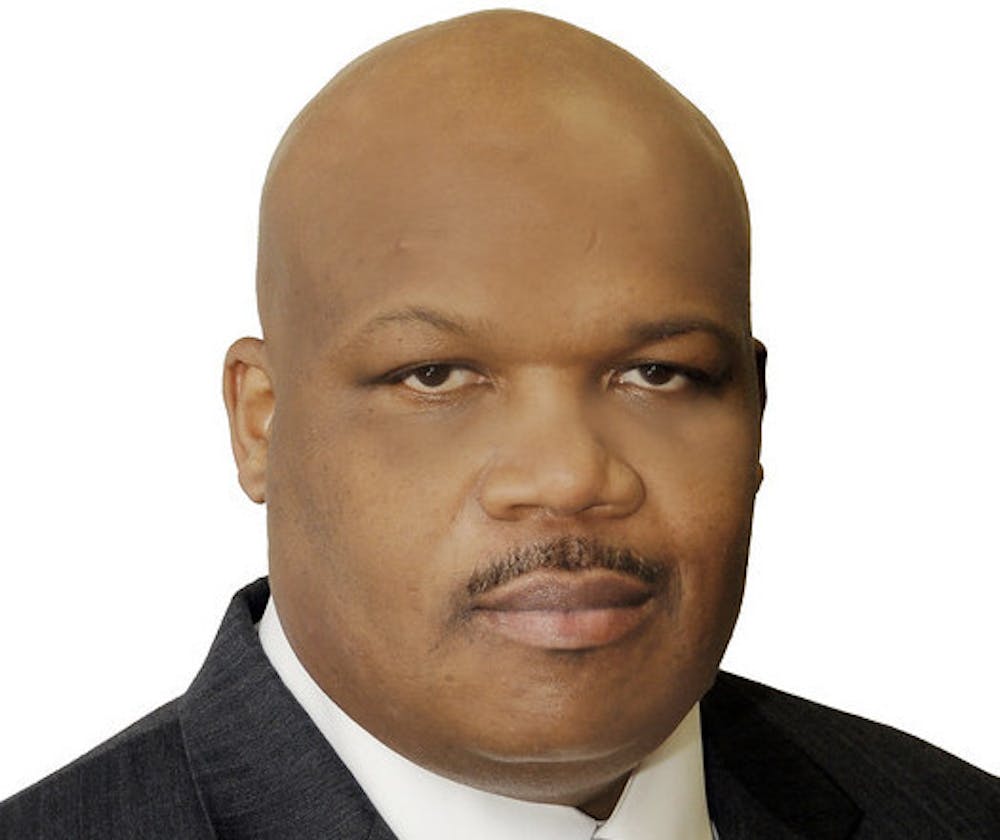The University announced in an email on July 27 that it has appointed Branville Bard, Jr. as vice president for public safety. Bard will assume the position on August 30 and will be responsible for overseeing public safety operations for the University and its medical campuses and facilities, excluding the Applied Physics Laboratory.
According to the email, Bard’s career has spanned multiple decades both in law enforcement and in advocacy for social justice and racial equality. He is the current police commissioner of Cambridge, Mass., which contains six college campuses and three hospitals. He entered that position after serving as the chief of police and director of public safety for the Philadelphia Housing Authority Police Department.
In this role, Bard will oversee public safety initiatives including the Innovation Fund for Community Safety, Behavioral Health Crisis Support Team and the Johns Hopkins Police Department (JHPD).
In June 2020, the University announced a two-year delay in the implementation of the Johns Hopkins Police Department (JHPD) in order to consider how resources would best be allocated to benefit the community. This decision followed nationwide protests over police brutality, as well as the 2019 occupation of Garland Hall. According to Bard, the University will resume the implementation of the JHPD at the end of the two-year pause.
Bard emphasized the need to enforce safety for the community.
“It’s been my experience that people want to be safe. What people don’t want is for the mechanisms they rely on for their safety to contribute to them feeling unsafe or to otherwise mistreat them,” he said. “[I want to focus] on having the unique opportunity to create the police department that the advocates would create.”
The JHPD has been a continuous cause of student protests, including a walkout in May organized by the Coalition Against Policing at Hopkins (CAPH).
Although sophomore Jake Szeszko expressed some support for Bard’s appointment in an email to The News-Letter, he had reservations regarding Bard’s stance on the JHPD.
“It is known that Bard plans to implement a police department despite backlash from a lot of the Hopkins student body, including myself,” he wrote. “Bard should be focusing on why there is so much resistance to having [the] JHPD and be willing to meet and discuss with student leaders to come to some sort of reasonable compromise for keeping campus safe.”
CAPH responded to Bard’s appointment in an email to The News-Letter, expressing strong disapproval of the decision.
“This is clearly an abuse of the [two]-year ‘pause’ and the dismantled community advisory board,” it wrote. “To create a special internal board for this hire while eliminating mechanisms for accountability is a direct attack on the community members who have stood up in opposition of the creation of [the] JHPD.”
Bard discussed how his upbringing and experiences in Southwest Philadelphia shaped his views on policing is in an interview with The News-Letter.
“I was a child of the ’70s, came up during a rough time for policing where basically community policing was done at the end of a nightstick. ” he said. “It’s not an accident that when I chose to do my doctoral studies I chose to do those on racial profiling and racially biased policing, certainly because I recognize that those issues are a problem.”
Bard holds a doctoral degree in public administration and a master’s degree in criminal justice from Valdosta State University as well as a master’s degree in public safety management from Saint Joseph’s University.
According to Bard, these experiences influenced his time spent working as a police commander in Philadelphia.
“As a commander in the city of Philadelphia, you will see that I worked tirelessly and worked to transform some of the most strained police-community relationships into some of the strongest relationships,” he said. “I was able to do that by establishing a culture that did not tolerate even the smallest amount of mistreatment or abuse of the members of the public and also drastically increasing police engagement.”
Dana Moore, a Charles Village resident and member of the vice president for public safety selection committee, believes that Bard is well-suited for the position.
“I was looking for someone who was sensitive to community issues and community concerns, someone who would take the time to dig into the history of this search and the the private police department of [the] University and all that that covered,” Moore said. “His experience was unique, being in Cambridge with so many universities. I was impressed by that.”
According to the University, Bard established the Family and Social Justice Section, which aided in responding to the various needs of juveniles, homeless persons, the elderly and those with mental health or substance abuse issues during his tenure as Cambridge police commissioner. Additionally, University administrators noted that he instituted the department’s procedural justice section, which aimed to monitor data related to police interactions with citizens via a community dashboard.
Bard previously came under fire for denying that the Cambridge police department possessed military equipment. A subsequently released inventory disproved this claim, revealing the department had 64 M4 assault rifles, tear gas, an armored vehicle and sniper rifles.
Bard elaborated on his objectives as Vice President for Public Safety at Hopkins.
“My goals are to make sure that public safety feels safe for all,“ he said. “We always focus on concerns and problems around the JHPD, but what you want to realize is that it’s a great opportunity for Hopkins to create the department that the advocates would create if they had the opportunity, one that builds the culture that doesn’t tolerate abuse of members of the community.”
Leela Gebo contributed reporting to this article.





